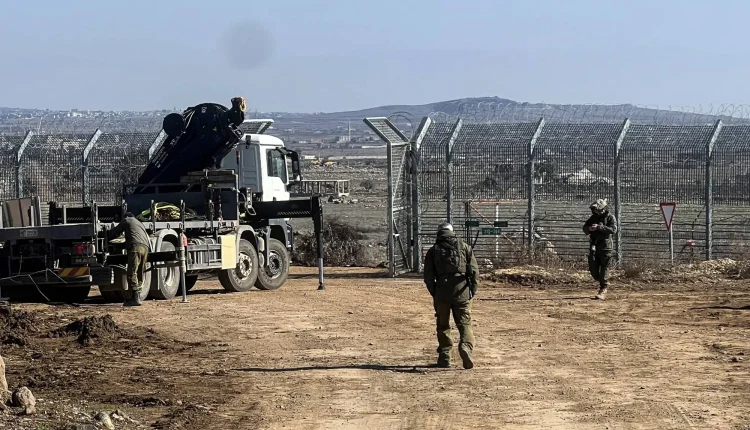By Malin Muhammad
QAMISHLI, Syria (North Press) – Political analysts and experts believe that Israel’s incursion into southern Syria since the fall of the previous regime on Dec. 8, 2024, aims to establish a security buffer zone and a political civil administration. They see this move as Israel’s attempt to secure a foothold in the new Syrian equation.
A few days ago, Israeli Defense Minister Israel Katz issued a fresh threat to Syria and its transitional president, Ahmad al-Sharaa, vowing that Israeli aircraft would continue to operate in Syrian airspace and strike any targets deemed hostile.
Reports and analyses indicate that Israel’s presence in Syria is closely tied to regional and international factors and the broader trajectory of events in the country.
Objectives of incursion
Anas Abu Arqub, an expert on Israeli affairs, asserts that Israel’s incursion serves two primary objectives. The first is to establish a security buffer zone in southern Syria, extending up to ten kilometers from the capital. This, he suggests, may pave the way for the formation of a military-civilian administration to exert control over the local population.
In an exclusive statement to North Press, Abu Arqub adds that the second goal is economic. Israel seeks to integrate Druze and Kurdish workers into its labor market to reduce reliance on Palestinian workers.
He emphasizes that Israel’s motives for advancing into southern Syria are strategic, encompassing political, economic, and security dimensions. The move, he argues, reflects Israel’s ambition to secure a role in shaping the future of Syria.
“This incursion highlights Israel’s expansionist aspirations, aiming to extend its influence toward Kurdish and Druze regions,” Abu Arqub explains.
He further warns of a “dangerous expansionist and colonialist outlook,” suggesting that Israel’s actions could impose a new power dynamic on regional and international actors involved in Syria.
Israel’s presence factors
Abu Arqub believes that Israel’s ability to maintain its presence in Syrian territories depends on regional and international developments.
“There are ongoing field developments, and regional and international actors are now engaging in power-sharing dynamics in Syria. Israel’s presence is contingent on these changes,” he notes, citing the roles of Iran, Turkey, Russia, and the United States in shaping the situation.
He stresses that Israel’s ambitions should not be underestimated, as they are directly linked to Syria’s oil, gas, and other economic resources.
Abu Arqub raises critical questions about the future. “Will there be power-sharing, and what will Russia’s role be? How will Iran and Hezbollah respond? These complex dynamics make it unlikely that Israel can maintain a permanent presence in southern Syria,” he adds.
Threats
Karam Doulati, a member of the executive office of the Assyrian Organization, argues that Israel’s intervention or the execution of its threats will depend primarily on its security objectives.
Speaking to North Press, Doulati states, “If Israel achieves its goals through this intervention, it may not need to follow through with its threats.”
The Austria-based Syrian politician stresses that Israeli threats should be taken seriously.
He believes that the best response to these threats is to “strengthen Syria from within by building a new Syrian state—one based on the rule of law, full and equal citizenship, recognition of ethnic and national diversity, and ensuring the participation and rights of all communities.”

